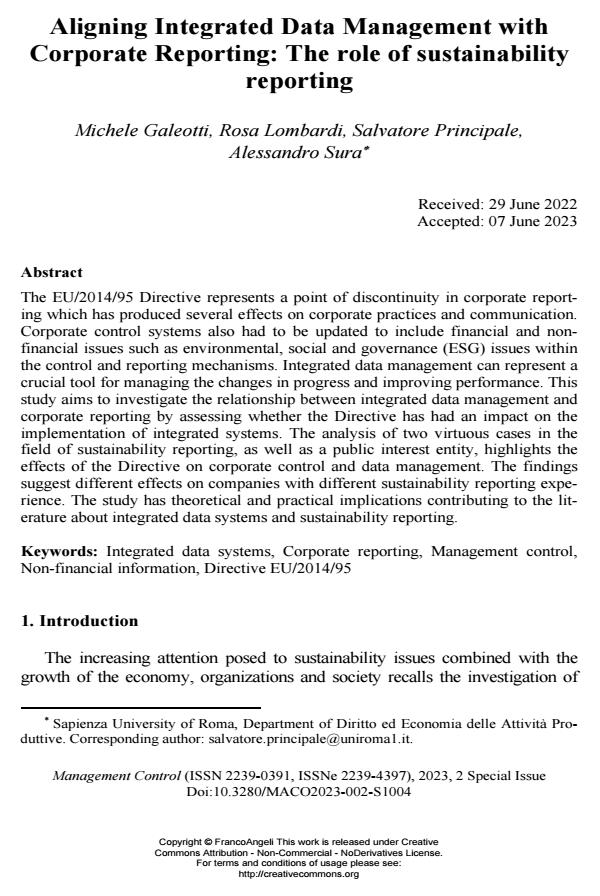Aligning Integrated Data Management with Corporate Reporting: The role of sustainability reporting
Titolo Rivista MANAGEMENT CONTROL
Autori/Curatori Michele Galeotti, Rosa Lombardi, Salvatore Principale, Alessandro Sura
Anno di pubblicazione 2023 Fascicolo 2023/2 Suppl.
Lingua Inglese Numero pagine 17 P. 65-81 Dimensione file 252 KB
DOI 10.3280/MACO2023-002-S1004
Il DOI è il codice a barre della proprietà intellettuale: per saperne di più
clicca qui

FrancoAngeli è membro della Publishers International Linking Association, Inc (PILA)associazione indipendente e non profit per facilitare (attraverso i servizi tecnologici implementati da CrossRef.org) l’accesso degli studiosi ai contenuti digitali nelle pubblicazioni professionali e scientifiche
The EU/2014/95 Directive represents a point of discontinuity in corporate report-ing which has produced several effects on corporate practices and communica-tion. Corporate control systems also had to be updated to include financial and non-financial issues such as environmental, social and governance (ESG) issues within the control and reporting mechanisms. Integrated data management can represent a crucial tool for managing the changes in progress and improving per-formance. This study aims to investigate the relationship between integrated data management and corporate reporting by assessing whether the Directive has had an impact on the implementation of integrated systems. The analysis of two virtu-ous cases in the field of sustainability reporting, as well as a public interest entity, highlights the effects of the Directive on corporate control and data management. The findings suggest different effects on companies with different sustainability reporting experience. The study has theoretical and practical implications contrib-uting to the literature about integrated data systems and sustainability reporting.
Parole chiave:Integrated data systems, Corporate reporting, Management control, Non-financial information, Directive EU/2014/95
Michele Galeotti, Rosa Lombardi, Salvatore Principale, Alessandro Sura, Aligning Integrated Data Management with Corporate Reporting: The role of sustainability reporting in "MANAGEMENT CONTROL" 2 Suppl./2023, pp 65-81, DOI: 10.3280/MACO2023-002-S1004